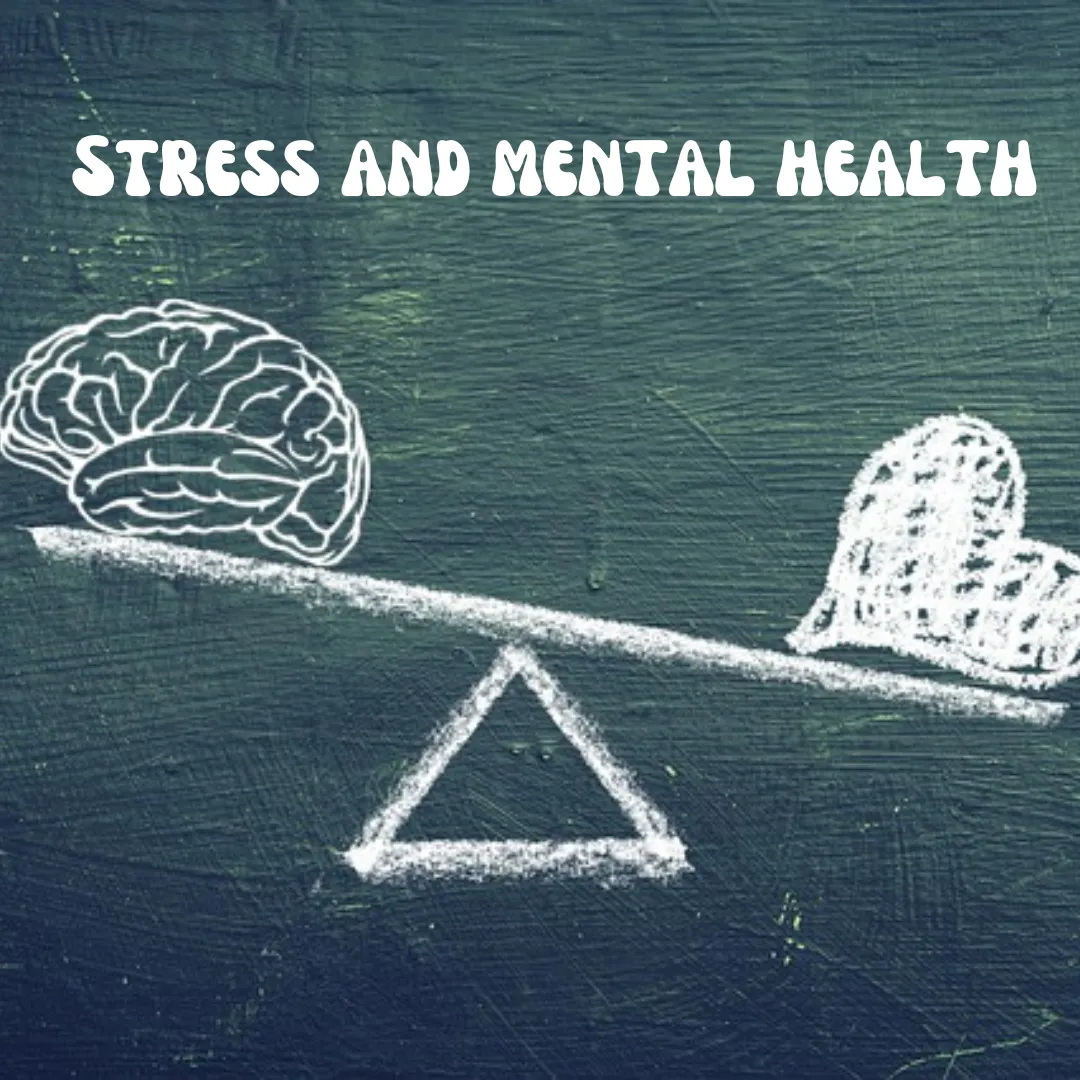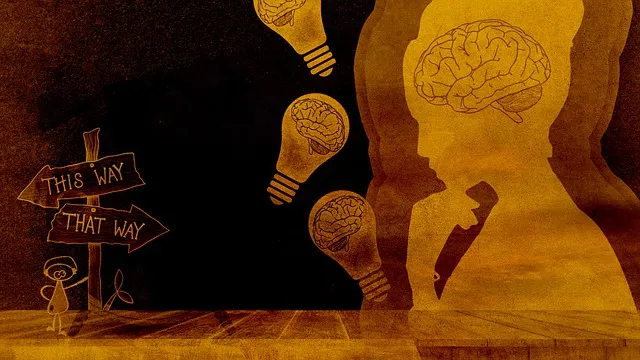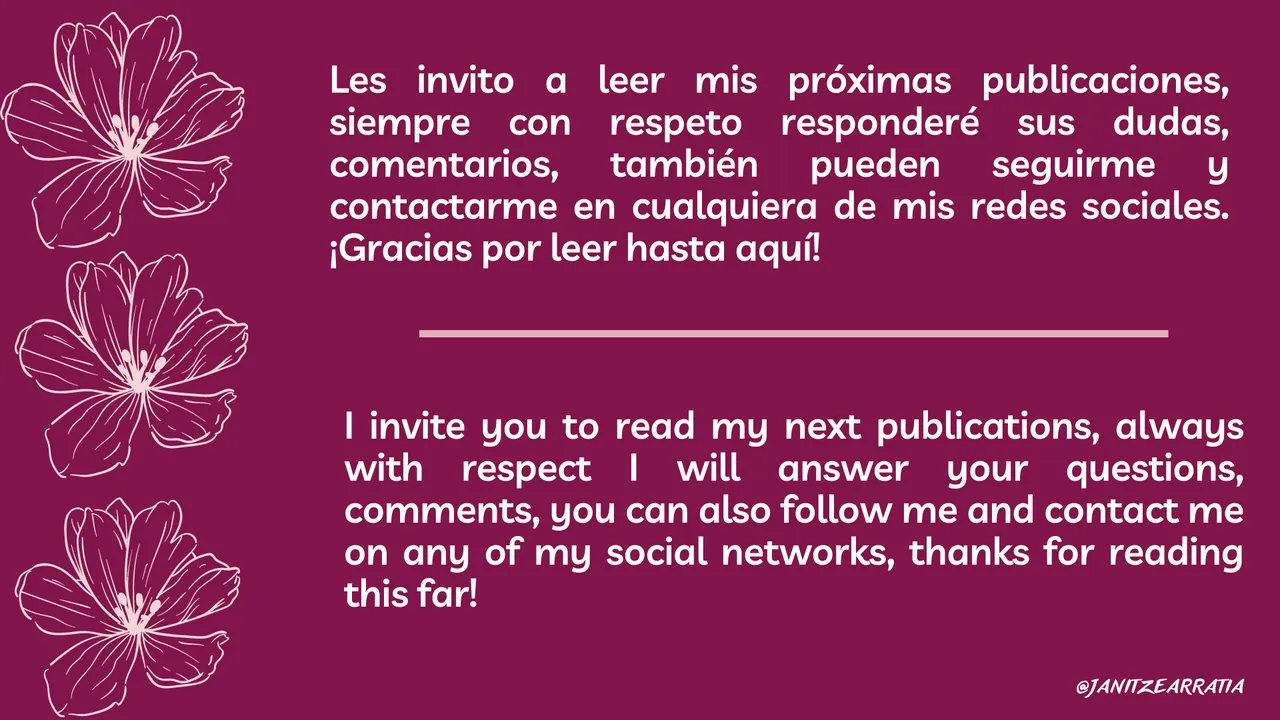
This post is both in English and Spanish, you can do it directly to English by giving✨HERE
Estres y salud mental
Conocer cuáles son los factores estresantes, alivia el malestar, nos brinda tranquilidad, ya que no tenemos que estar buscando la causa, solo buscar aliviarnos al identificarla... ¡Comprender!, lo que nos sucede.
Cada uno de nosotros somos de determinada manera según nuestra personalidad, pero cuando estamos en situaciones amenazantes o de estrés nos alteramos para activar nuestro sistema de alerta y nos mostramos diferentes a nuestro estado habitual.
Tendemos a cambiar, acá algunos ejemplos, que he visto en la red de apoyo donde soy voluntaria como coach ontológico, quien es:
SENSIBLE: suele sentirse vulnerable, desprotegido, sin toma de decisión.
TÍMIDO: se bloquea y no sabe qué hacer.
OBSESIVO: le da vueltas a las cosas, comienza su cerebro a buscar respuestas
IMPULSIVO: suele volverse agresivo a tener menos tolerancia.
HIPOCONDRÍACO: se mantiene enfermo y todo puede ser grave.
DEPRESIVO: no le da sentido a las cosas y quiere rendirse.
Debemos tener presente
Cada día sentimos una gran cantidad de emociones y sentimientos que nos indican que estamos vivos y que tenemos la capacidad de sentir.

Las emociones no son positivas, ni negativas, simplemente emociones que se sienten agradables o desagradables, así no más, todas son permitidas y todas son importantes, sin embargo, muchos preguntan❓cuando debo preocuparme y atender el malestar, te respondo:
La clave para responder favorablemente a los agentes que son estresores externos será identificarlos:
Si te desconcentras con facilidad, procrastinas, tienes dificultad para conciliar el sueño, te preocupas por pequeñas cosas y muchas otras cosas más.
Fíjate en dos cosas
Intensidad de los síntomas:
Que tanto te incapacita lo que sientes, que tan fuerte es, o si modifica tu rutina del día y nada más, te hace procrastinar.
Ej.: acostumbras a disfrutar una salida, pero un día prefieres no salir.
No pasa nada, ni te provocó simplemente, por más que acostumbres a disfrutar las salidas
Frecuencia de los síntomas
Fíjate cuantas veces se repite eso que sientes que te desagrada, si pasan a ser más los días alterados que días de conformidad.
Ej.: un día no toleras muchas cosas en el trabajo y estuviste irritable, de mal humor, esperando la hora de irte. Esto vuelve a ocurrir luego de varios meses, no pasa nada.
Evaluar estos dos aspectos te permitirá diferenciar si es esperado o no ese comportamiento.
A todos nos pasa en algún momento, estamos viviendo experiencias humanas simplemente. Cuando lo hacemos consciente, nos damos cuenta y podemos darle solución.
Lo importante es meterle el menor drama posible, porque NO siempre es una alarma cada cosa que sentimos.
Es clave para nuestra existencia fortalecerla con los tropiezos para que aprenda de los errores
Reconocer nuestras fallas y necesidad de hacer cambios es valioso para lograr armonía en nosotros y nuestro entorno.
Una vez que reconozcas algo en lo que debes cambiar, empezarás a trabajar en ello. De lo contrario no esperes cambios en ti ni en los demás sin ese reconocimiento.
Yo me quedo con este mantra que te comparto y me ayuda a comprender y aliviar mi SER.
“Yo (MENCIONAS TU NOMBRE) agradezco por estas oportunidades porque me has ayudado a reconocer cuando las cosas no están bien y deben agarrar otro camino”.
Cada mensaje de gratitud no solo es necesario, sino extremadamente valioso para mantener las relaciones contigo mismo y con los demás.
Promover la salud mental y trabajar en la prevención debe ser tarea de todos para poder identificar tus fallas y reconocerlas, y ese es el inicio para lograr el cambio que necesitas. Pero no afuera, no en el otro, más bien asumiendo tu responsabilidad.

Esto es determinante para manejar el estrés, mejorar él, ¿cómo?, nos relacionamos con los demás y tomamos decisiones.
Cultivar nuestra salud mental incluye nuestro bienestar emocional, psicológico y social; la forma en que pensamos, sentimos y actuamos cuando enfrentamos la vida.
Stress and mental health
✨English✨
Knowing what are the stressors, relieves discomfort, gives us peace of mind, because we do not have to be looking for the cause, only seek relief by identifying ... To understand what is happening to us.
Each one of us is a certain way according to our personality, but when we are in threatening or stressful situations we alter ourselves to activate our alert system, and we show ourselves different from our usual state.
We tend to change, here are some examples, that I have seen in the support network where I volunteer as an ontological coach, who is:
SENSITIVE: usually feels vulnerable, unprotected, without decision-making.
TUMID: gets blocked and does not know what to do.
OBSESSIVE: spins things around, starts his brain looking for answers.
IMPULSIVE: tends to become aggressive to have less tolerance.
HYPOCHONDRIA: keeps getting sick and everything can be serious.
DEPRESSIVE: does not make sense of things and wants to give up.
We must keep in mind
Every day, we feel a great amount of emotions and feelings that indicate that we are alive and that we have the capacity to feel.

Emotions are neither positive, nor negative, simply emotions that feel pleasant or unpleasant, just like that, all are allowed and all are important, however, many ask ❓ when should I worry and attend to discomfort, I answer you:
The key to responding favorably to the agents that are external stressors will be to identify them:
If you get unfocused easily, procrastinate, have difficulty falling asleep, worry about little things, and many other things besides.
Notice two things:
Intensity of symptoms
How much you feel incapacitated by what you feel, how strong it is, or if it modifies your day's routine and nothing else, makes you procrastinate.
E.g.: you are used to enjoying an outing, but one day you prefer not to go out.
Nothing happens, nor does it simply provoke you, no matter how much you are used to enjoying your outings.
Frequency of symptoms
Notice how many times you repeat what you feel you dislike, if there are more days when you are upset than days of conformity.
E.g.: one day you do not tolerate many things at work, and you were irritable, in a bad mood, waiting for the time to leave. This happens again after several months, nothing happens.
Evaluating these two aspects will allow you to differentiate whether this behavior is expected or not.
It happens to all of us at some point, we are simply living human experiences. When we become aware of it, we realize it, and we can solve it.
The important thing is to put as little drama as possible, because it is NOT always an alarm every time we feel something.
It is key for our existence to strengthen it with the stumbles so that it learns from the mistakes.
Recognizing our failures and the need to make changes is valuable to achieve harmony in ourselves and our environment.
Once you recognize something you need to change, you will start working on it. Otherwise, do not expect changes in yourself or others without that recognition.
I keep this mantra that I share with you, and it helps me to understand and soothe my SELF.
"I (MENTION YOUR NAME) am grateful for these opportunities because you have helped me recognize when things are not right and must take another path."
Each message of gratitude is not only necessary, but extremely valuable in maintaining relationships with yourself and others.
Promoting mental health and working on prevention should be everyone's task to be able to identify your faults and recognize them, and that is the beginning to achieve the change you need. But not outside, not in the other, but rather assuming your responsibility.

This is crucial to manage stress, improve it, how we relate to others and make decisions.
Cultivating our mental health includes our emotional, psychological and social well-being; the way we think, feel and act when facing life.

MIS REDES SOCIALES|MY SOCIAL NETWORKS
Iconos por: | Icons by: Icofinder
Edición por:/Edition by: @janitzearratia Canva
Fotos de pixabay de portada y en contenido fueron editadas en | Pixabay photos of cover and content were edited Canva
Separadores Y Banner son tomados de Recursos de: | Separators and Banners, are taken from Resources from: Canva
Translation with| DeepL



